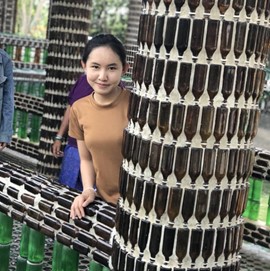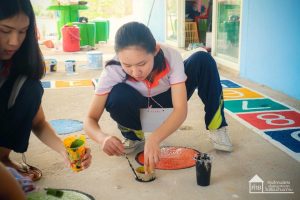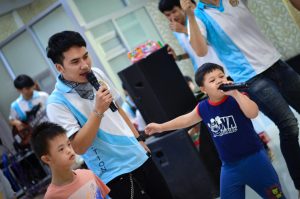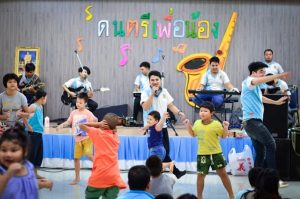Fakfang Areya Soonghangwah

Fakfang has a hearing disability from birth but that did not stop her from pursuing hee studies to college level. She is currently a 3rd year Computer student at Rajabhat Ubol Rachathani University. The reason she chose to study here was because the University provide a scholarship for student with disabilities.
Being a disabled person, she must always try harder than her peers in learning ne information and communication. “If you ask me, I can certainly say everything is difficult for me and it takes me more energy to learn,” says Fakfang. “But difficult does not mean it’s impossible.”
The Ubol Rachathani University is one of the 5 new Rajabhat Universities introduced to SO Thailand’s Youth programme this year, and Fakfang joined its Youth Activation Committee. “Youth Activation project, not only benefits people with I, but also impact students like us, too,” says Fakfang. “I have received new information to help be better understand people with ID, and I have realized that we are basically all the same even though we have different abilities. My parents have always encouraged me to be myself and to be a part of society. With Youth Activation, Special Olympics has provided me the opportunity to encourage people with ID to also pursue their dreams and be a part of the community.”

Arm Chaiwat Temtawong


Arm is a 4th year student majoring in Music at Rajabhat Udonthani University, located across Vientien, Laos, on the Maekong River. It is one of the 5 new Rajabhat Universities introduced to SO Thailand’s Youth programme this year.
Having to support his studies by singing in restaurants since his teens, Arm has been exposed to many types of audience and never felt nervous on stage. However, he admitted that he was quite nervous to perform for SO Thailand athletes in one of the unified school activities held at his university in October. He was anxious because he had absolutely no experience with any disabled people. He was not sure if he would be able to use the correct words to communicate with the athletes during interactions or if he could cope when the athletes become upset.
“In fact, it was not as difficult as I had imagined,” says Arm. “The athletes were smiling and enjoyed the activities. Some copied our movements and singing style very well. We only need to choose simple words when we give instructions and provide them with gentle support. This experience has changed my perception regarding ID people and I am committed to create more awareness of this issue among my circle of family and friends. Thank you Special Olympics Thailand for giving me this opportunity to be part of the movement.”
